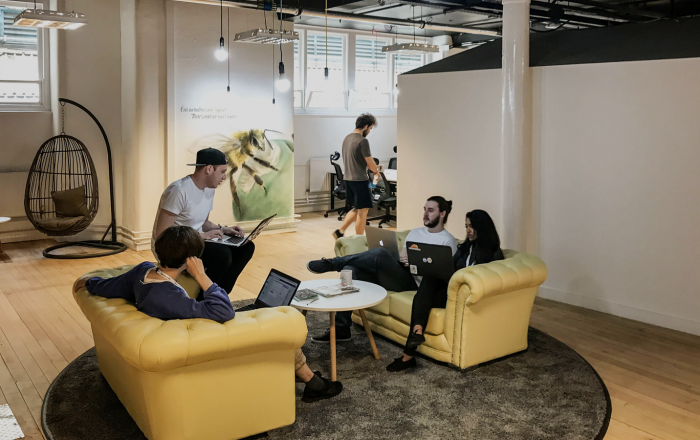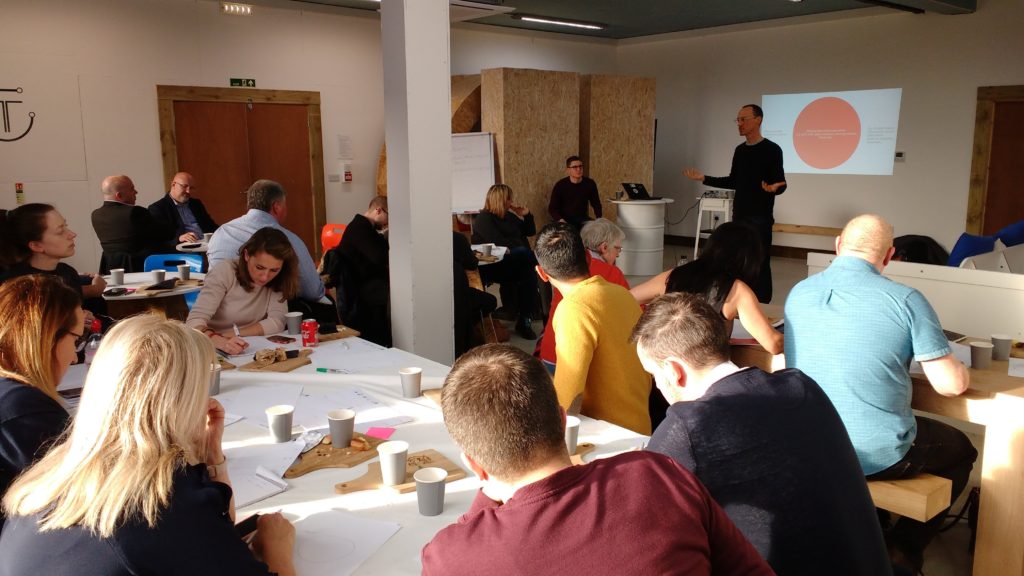How can technology strengthen communities?
Tuesday 30 January 2018

How can technology strengthen communities?
We’re delighted to announce an exciting new partnership that will use technology to solve social problems and empower communities.
Omidyar Network, a philanthropic investment firm established by eBay founder Pierre Omidyar and his wife Pam, has awarded the Co-op Foundation £700,000 – among its first-ever investments in the UK.
The funding will support our two-year partnership with The Federation, a new co-working community of digital innovators in Manchester, established by the Co-op and united by a shared commitment to its ethical values.
Early-stage social enterprises using technology to improve lives, reduce inequality and increase civic participation will be able to apply for support to help their ideas take off. We’ll be offering free co-working space at The Federation to up to 60 social innovators whose plans show potential for sustainable impact.
Through a series of public events, the partnership will also engage with broader questions about the role of technology in society – both its vast potential to transform lives for the better, and the many new ethical, social and economic challenges it presents.
Technology and loneliness – a ‘double-edged sword’?
Over the last year, the Co-op Foundation has set out to investigate and address youth loneliness. As we’ve done so, technology has been a recurring theme.
Debate often centres on concerns about social media and its effects on young people’s emotional health. The Children’s Commissioner for England recently warned of the ‘cliff-edge’ as young people first join social networks, unprepared for the social pressure these can bring.
The youth-led research we’re supporting at Manchester Metropolitan University has found that while young people do feel anxieties about social media, they are also positive about the possibilities of online connection – as an extension of, rather than a substitute for face-to-face interaction. Indeed technology can even be central to teens’ sense of identity and belonging – in a recent NCS study, 39% of boys defined themselves as ‘gamers’ and 21% as ‘techies’.
The Children’s Commissioner also highlights important questions of governance and accountability. The internet ‘is not designed with children in mind’, although one third of its users are under the age of 18. Pressure is growing for big tech companies to do more on issues from tackling online abuse to respecting privacy rights. (Although many children lay the blame closer to home, complaining that their parents’ social media sharing habits make them uncomfortable.)
Diversity, digital skills and ‘design hops’
Our last blog post examined some of the demographic disparities in youth loneliness. And as we consider diversity in the digital era, age isn’t the only characteristic we should be concerned with. Just how representative are the people writing the algorithms that have an ever-growing influence on our lives? Or those who extract profit from the data our online actions generate?
Meanwhile, thousands of charities and social enterprises, rooted in diverse communities up and down the UK, exist to tackle inequality and injustice. These organisations should be at the vanguard of using digital tools to give a voice to the disenfranchised, protect the vulnerable, and create equal opportunity for all. Yet many are still struggling with the basics. The digital skills gap is hindering the social sector’s ability to raise funds, reach more of those who need help, or make its services as effective as possible.
In response to this, we recently supported a series of ‘design hops’ led by CAST – the Centre for Acceleration of Social Technology. These workshops introduced 80 not-for-profits to digital processes for rethinking aspects of their services. Seeing the level of demand for this support, we’re keen to increase our efforts to stimulate and strengthen the use of tech for social good.

What next?
The support of Omidyar Network will allow us to do just that. And by working with The Federation, we’ll be joining an existing community of innovators who are already putting inclusion and ethics at the heart of Manchester’s growing digital economy.
The offer of free co-working space is open to social enterprise start-ups of up to 4 full-time workers. They must be set up to benefit communities in the UK, and be able to show how they will make themselves accountable. And because our support is time-limited for 12 to 18 months, they must have credible business plans to grow their income and sustain their impact beyond this period.
As part of the Federation community, they’ll also benefit from extensive peer support networks and expert input from Co-op colleagues.
More information on how to apply can be found on the Federation website.
We’re also putting together plans for the collaborative events series that this funding will support. This will be wide-ranging in scope, but key themes will include diversity in tech, citizen empowerment and civic participation.
We hope to share lots more learning from our youth projects as well – looking beyond the headline fears about social media, to find out what today’s ‘digital natives’ really think about the technology that shapes all our worlds.
